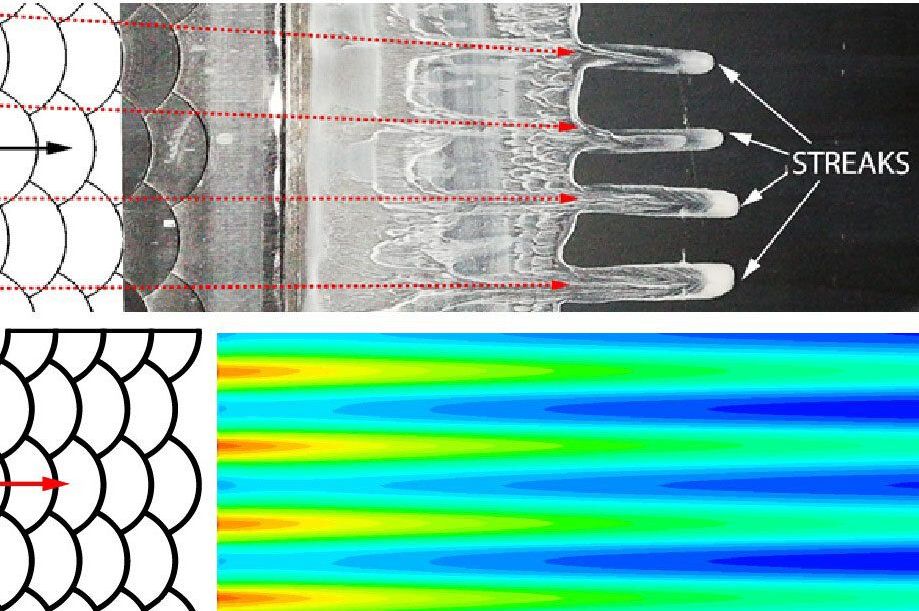The team’s findings have been published in Nature: Scientific Reports: “Transition delay using biomimetic fish scale arrays,” and in the Journal of Experimental Biology: “Streak formation in flow over biomimetic fish scale arrays.”
Reducing drag means faster aircraft speeds and less fuel consumption—an important area of study for aerodynamicists such as Professor Bruecker, City’s Royal Academy of Engineering Research Chair in Nature-Inspired Sensing and Flow Control for Sustainable Transport, and City’s Sir Richard Oliver BAE Systems Chair for Aeronautical Engineering.
Through their biomimetic study, Professor Bruecker’s team has discovered that the fish-scale array produces a zig-zag motion of fluid in overlapping regions of the surface of the fish, which in turn causes periodic velocity modulation and a streaky flow that can eliminate Tollmien-Schlichting wave induced transition to reduce skin friction drag by more than 25 percent.
